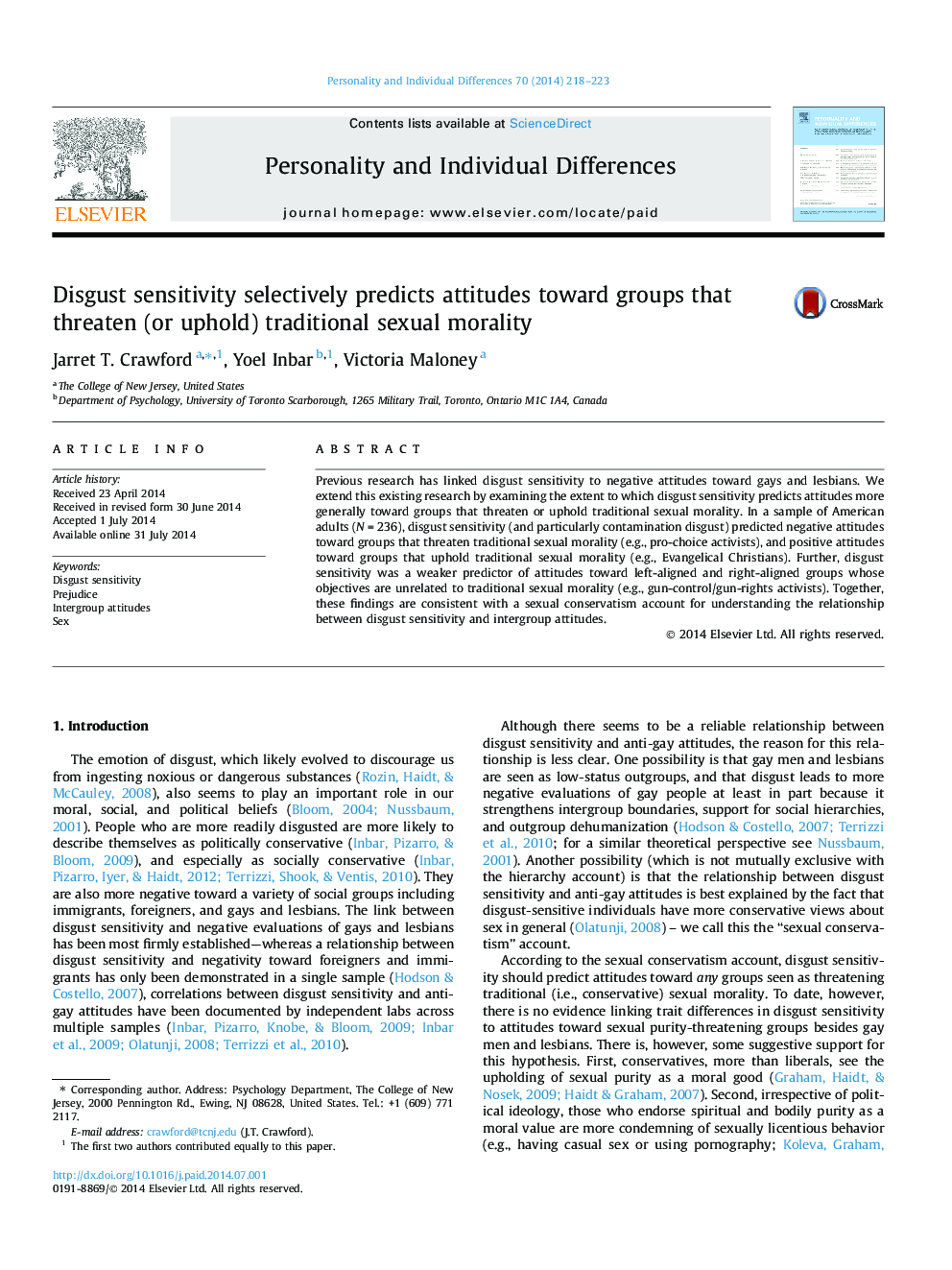| Article ID | Journal | Published Year | Pages | File Type |
|---|---|---|---|---|
| 890342 | Personality and Individual Differences | 2014 | 6 Pages |
•Disgust sensitivity (DS) predicted disliking of groups that threaten sexual morality.•DS predicted liking of groups that uphold sexual morality.•DS did not predict attitudes toward groups unrelated to sexual morality.•Results support the sexual conservatism account of the DS–attitude relationship.
Previous research has linked disgust sensitivity to negative attitudes toward gays and lesbians. We extend this existing research by examining the extent to which disgust sensitivity predicts attitudes more generally toward groups that threaten or uphold traditional sexual morality. In a sample of American adults (N = 236), disgust sensitivity (and particularly contamination disgust) predicted negative attitudes toward groups that threaten traditional sexual morality (e.g., pro-choice activists), and positive attitudes toward groups that uphold traditional sexual morality (e.g., Evangelical Christians). Further, disgust sensitivity was a weaker predictor of attitudes toward left-aligned and right-aligned groups whose objectives are unrelated to traditional sexual morality (e.g., gun-control/gun-rights activists). Together, these findings are consistent with a sexual conservatism account for understanding the relationship between disgust sensitivity and intergroup attitudes.
